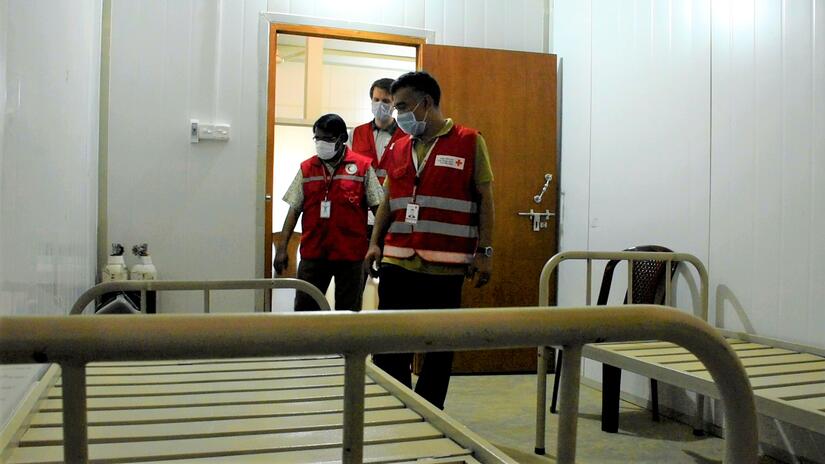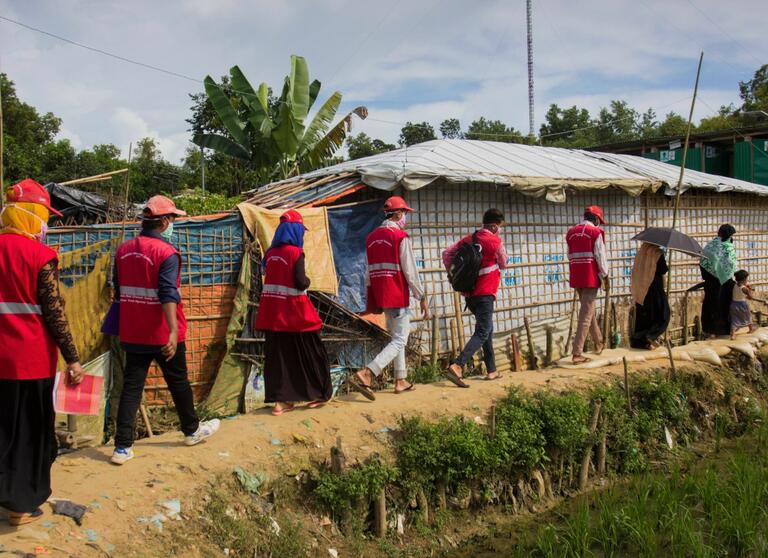Kuala Lumpur/Geneva/Cox’s Bazar, 22 June 2020--Two new isolation field hospitals are opening to treat an alarming and growing number of COVID-19 patients in Cox’s Bazar, Bangladesh camps and adjacent host communities.
The isolation and treatment centres help address a growing gap in critical medical care needed to prevent the spread of COVID-19 and mass deaths in the world’s biggest camps for displaced people from Rakhine state of Myanmar.
More than 1500 cases of COVID-19 in the Cox’s Bazar region, including 37 confirmed cases and three deaths in the crowded camps, are putting immense pressure on existing government hospitals and health facilities established by international relief agencies.
Syed Ali Nasim Khaliluzzaman, Head of Population Movement Operation, Bangladesh Red Crescent Society in Cox’s Bazar, said that the true extent of the outbreak may not be fully apparent yet due to limited testing and health facilities available in the camp.
“Extremely overcrowded living conditions, the existence of chronic diseases, basic sanitation and hygiene facilities and limited access to healthcare make the displaced communities in Cox’s Bazar extremely vulnerable to the virus,” he said
There are an estimated 1.24 million people in the Cox’s Bazar area, including more than 900,000 people living in the camps, with the existing healthcare system stretched to the limit even before the COVID-19 outbreak.
As part of a coordinated humanitarian effort, Red Cross Red Crescent has already established 12 healthcare facilities in the camp and meeting the health needs remains a huge challenge for all aid organisations in Cox’s Bazar.
“The two new field hospitals are a step to closing the gap in crucial medical care, but it is important to remember that COVID-19 is not the only health emergency for the people living in these camps,” said Sanjeev Kumar Kafley, Head of IFRC’s sub-office in Cox’s Bazar.
“Whilst the virus is emerging as a massive threat to people living in the camp, there remain high levels of deadly diarrhoea, acute respiratory infections and clusters of measles, all placing ongoing demands on the healthcare system in and around the camps.
“These communities now need even more support than ever, which can only be provided through a unified effort between national agencies, humanitarian organisations and the international community.”
Photos available here

133,232,000
CHF Needed to help most vulnerable

87,393,795
CHF currently funded



